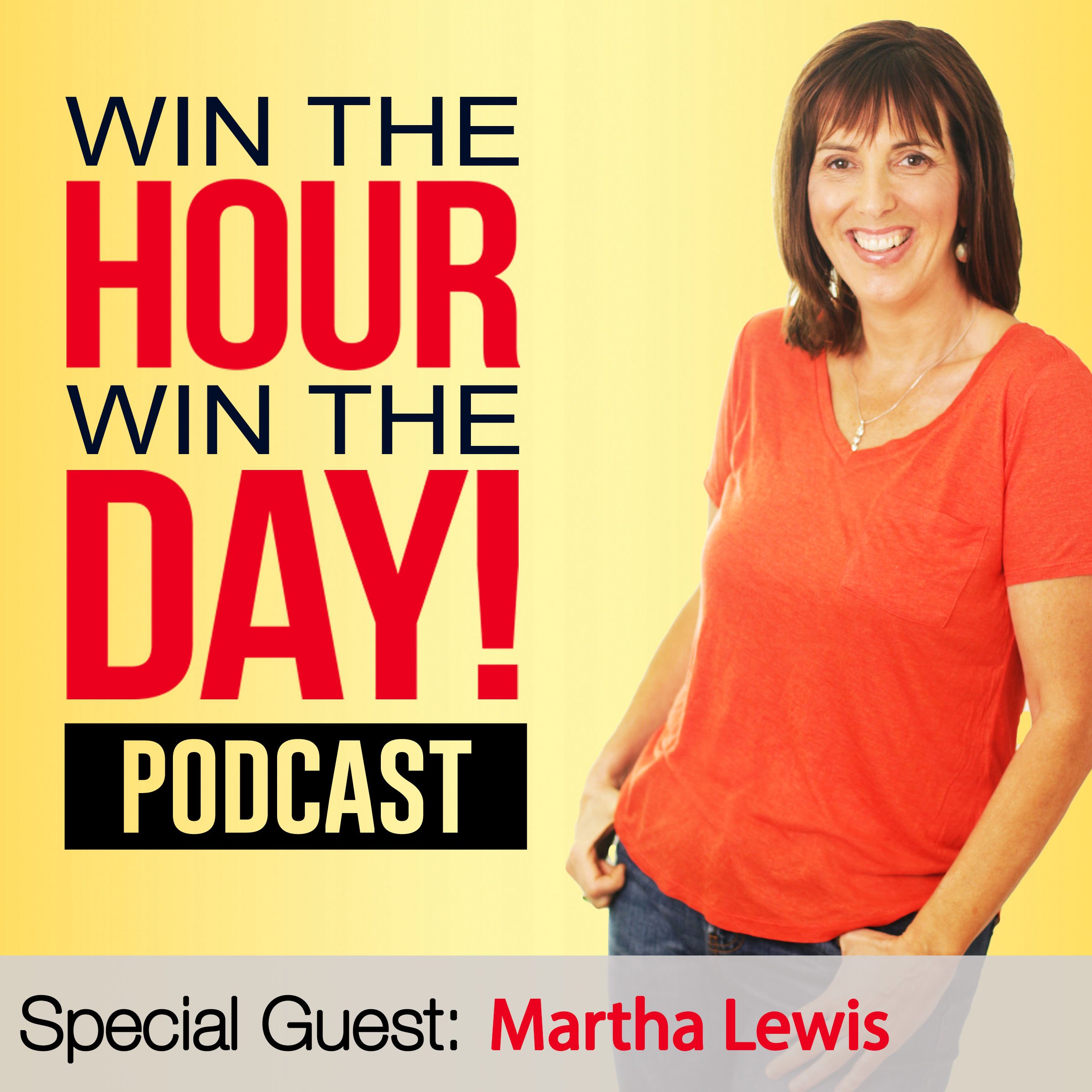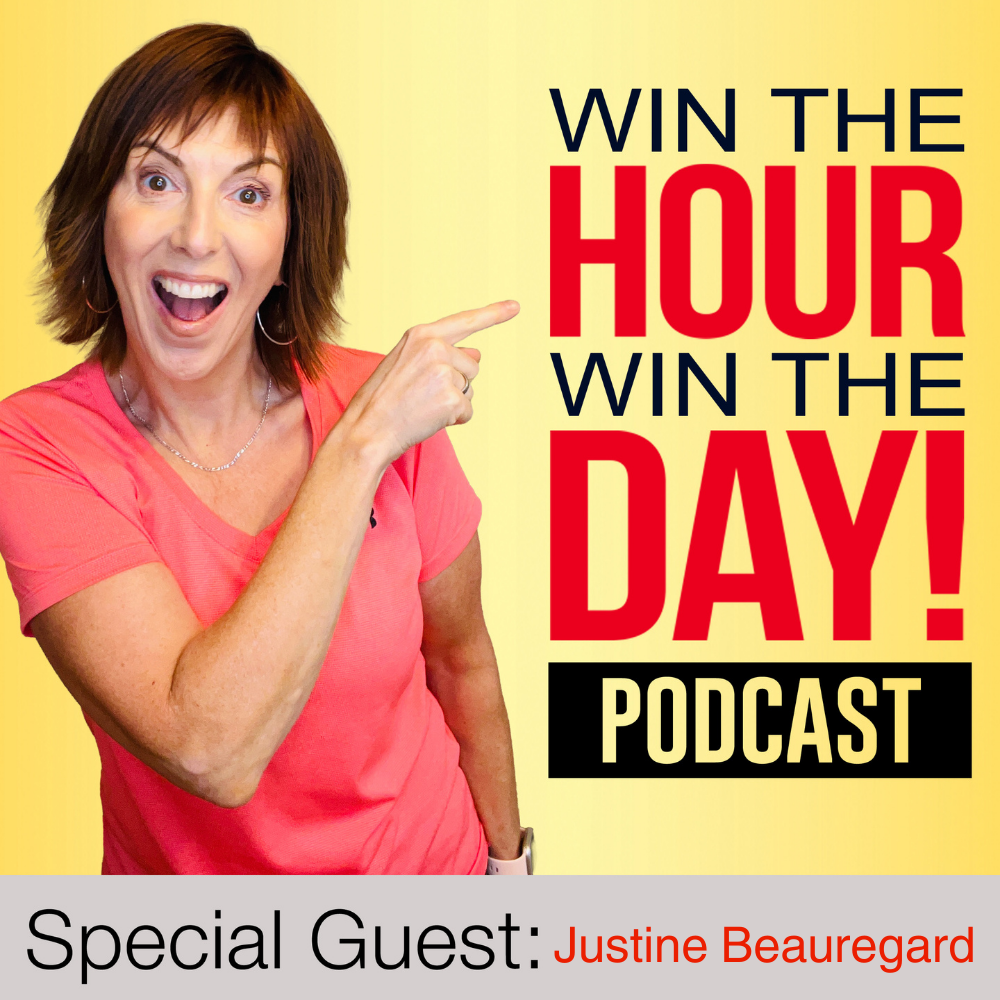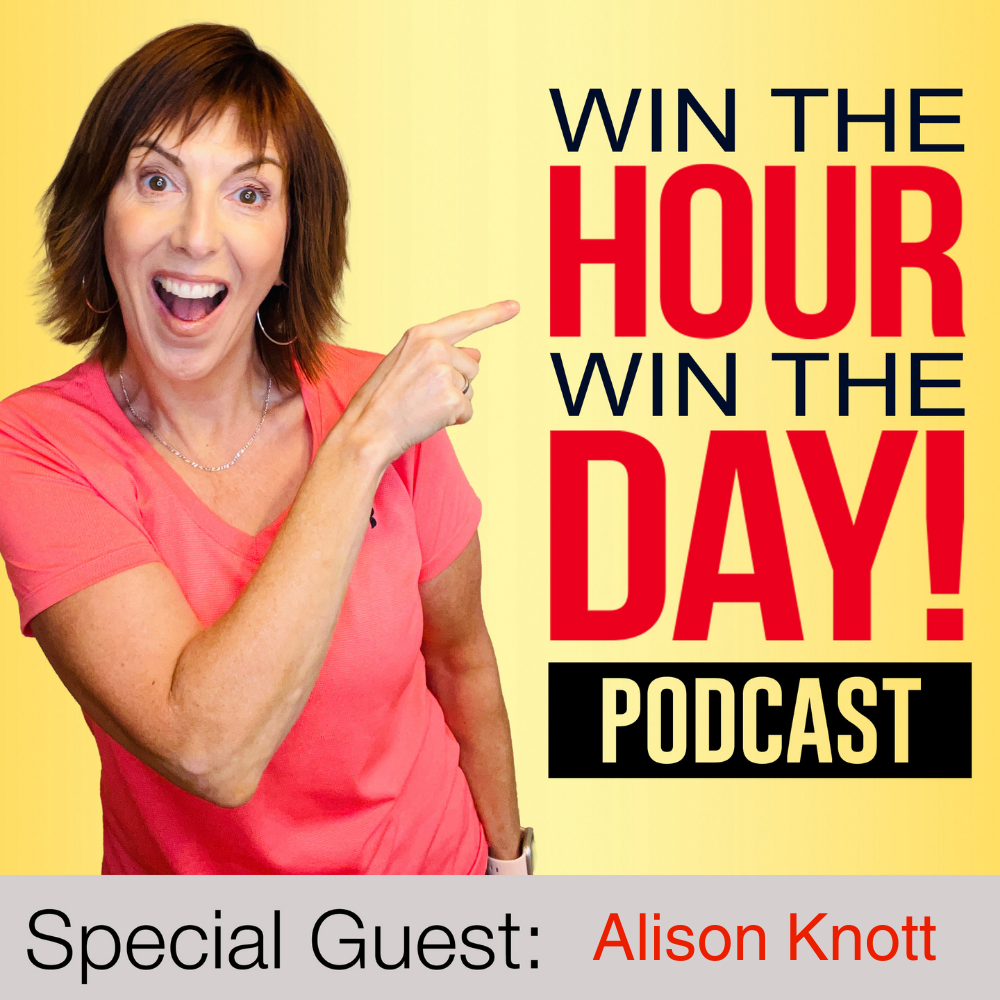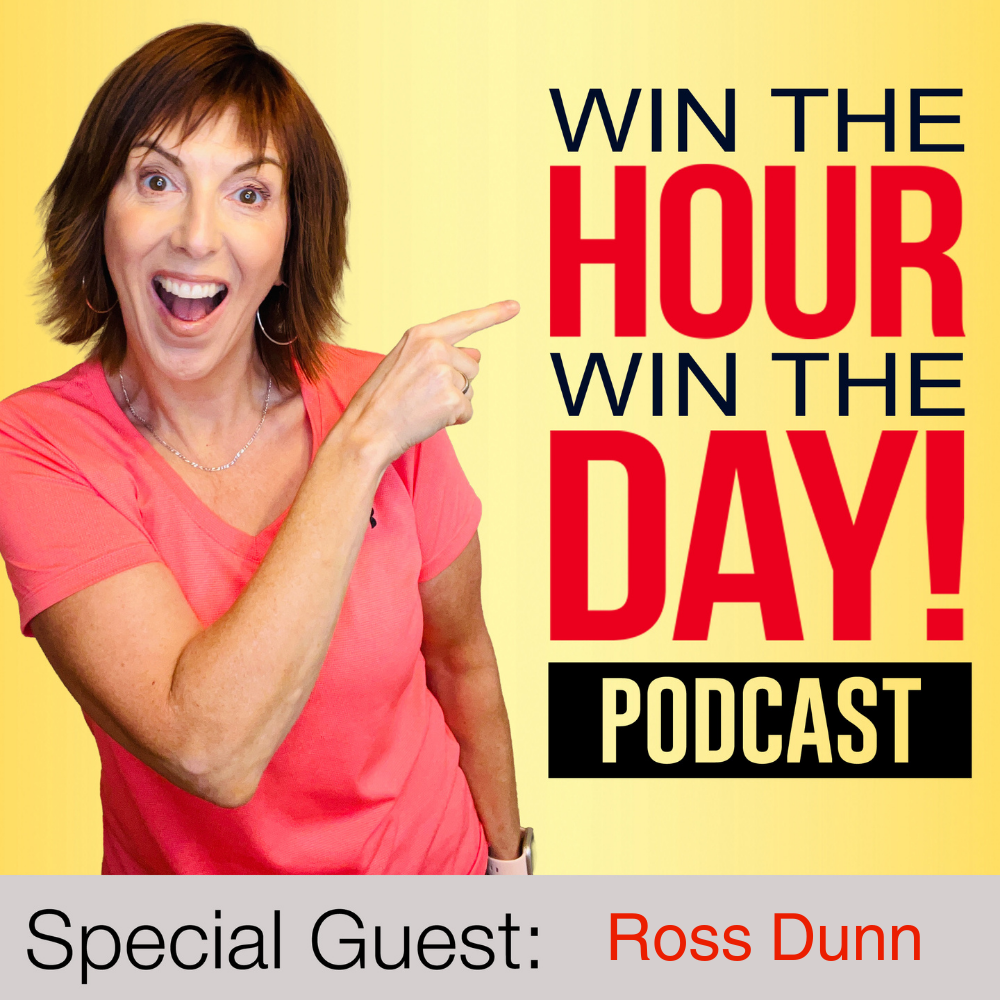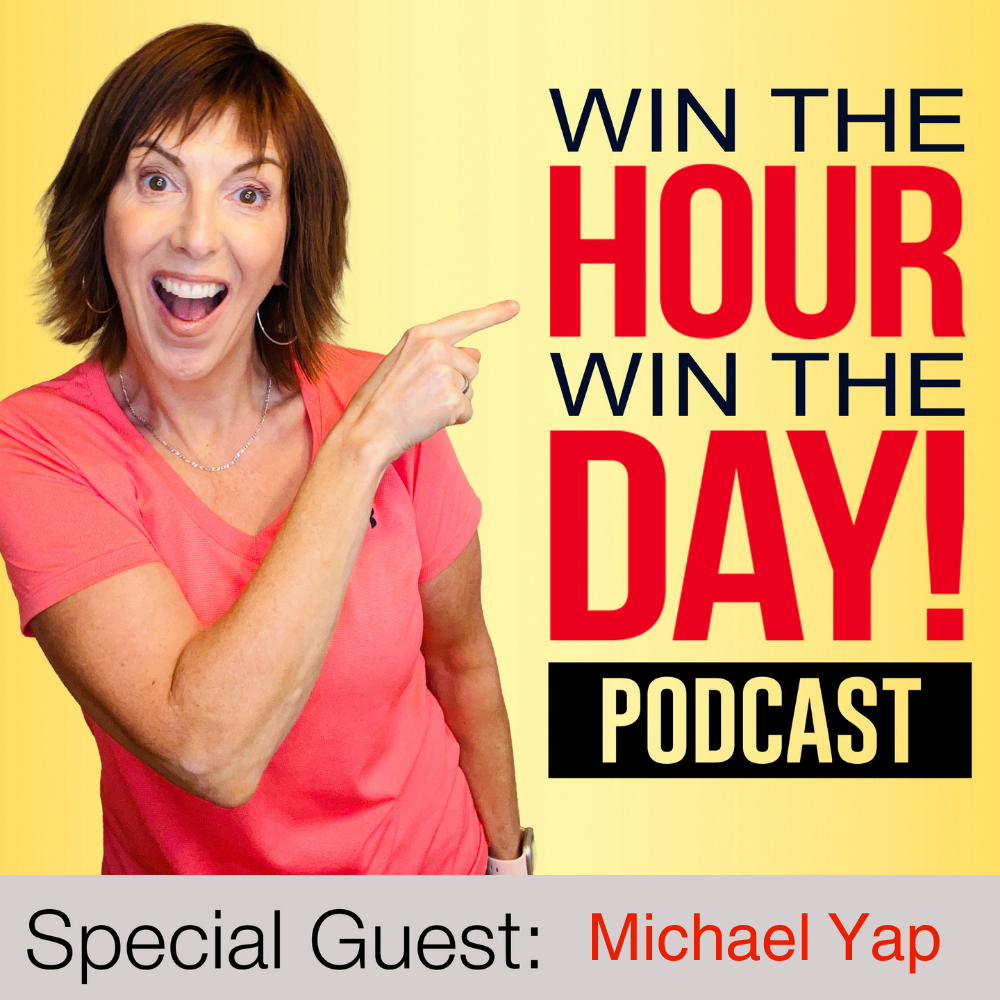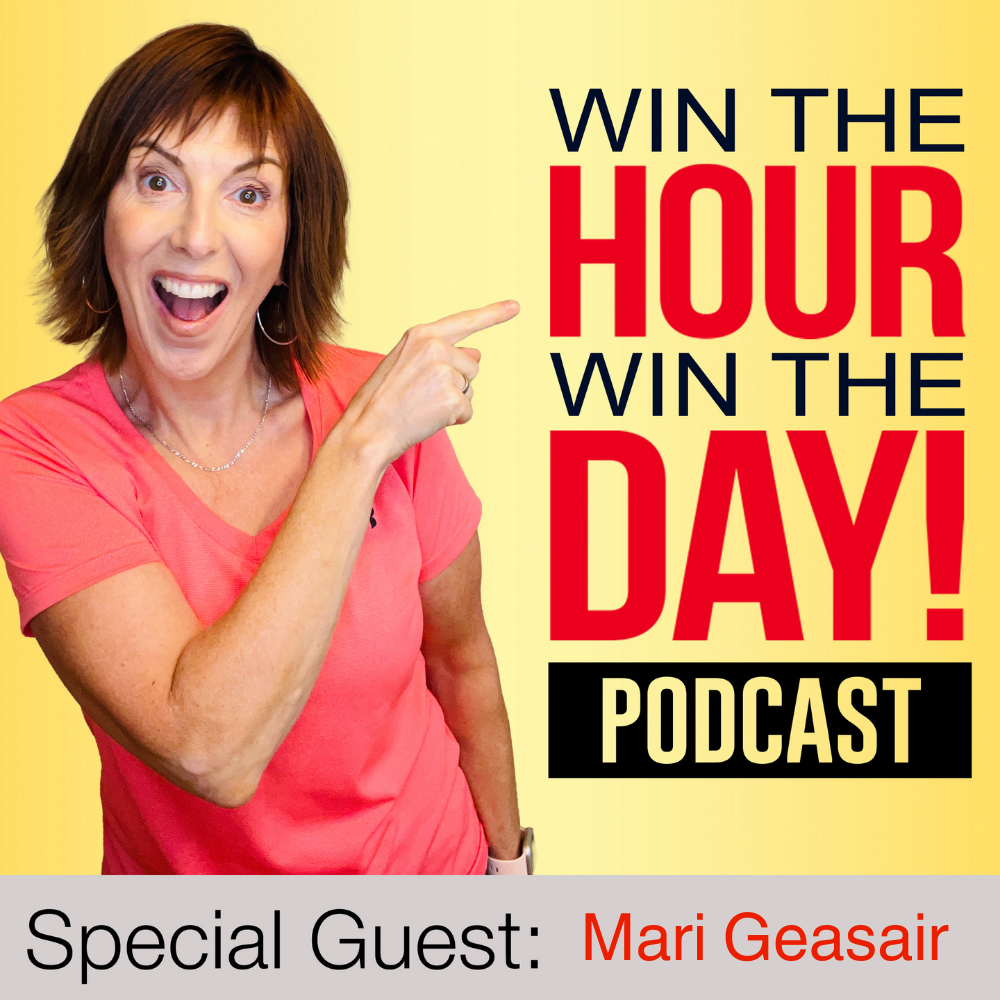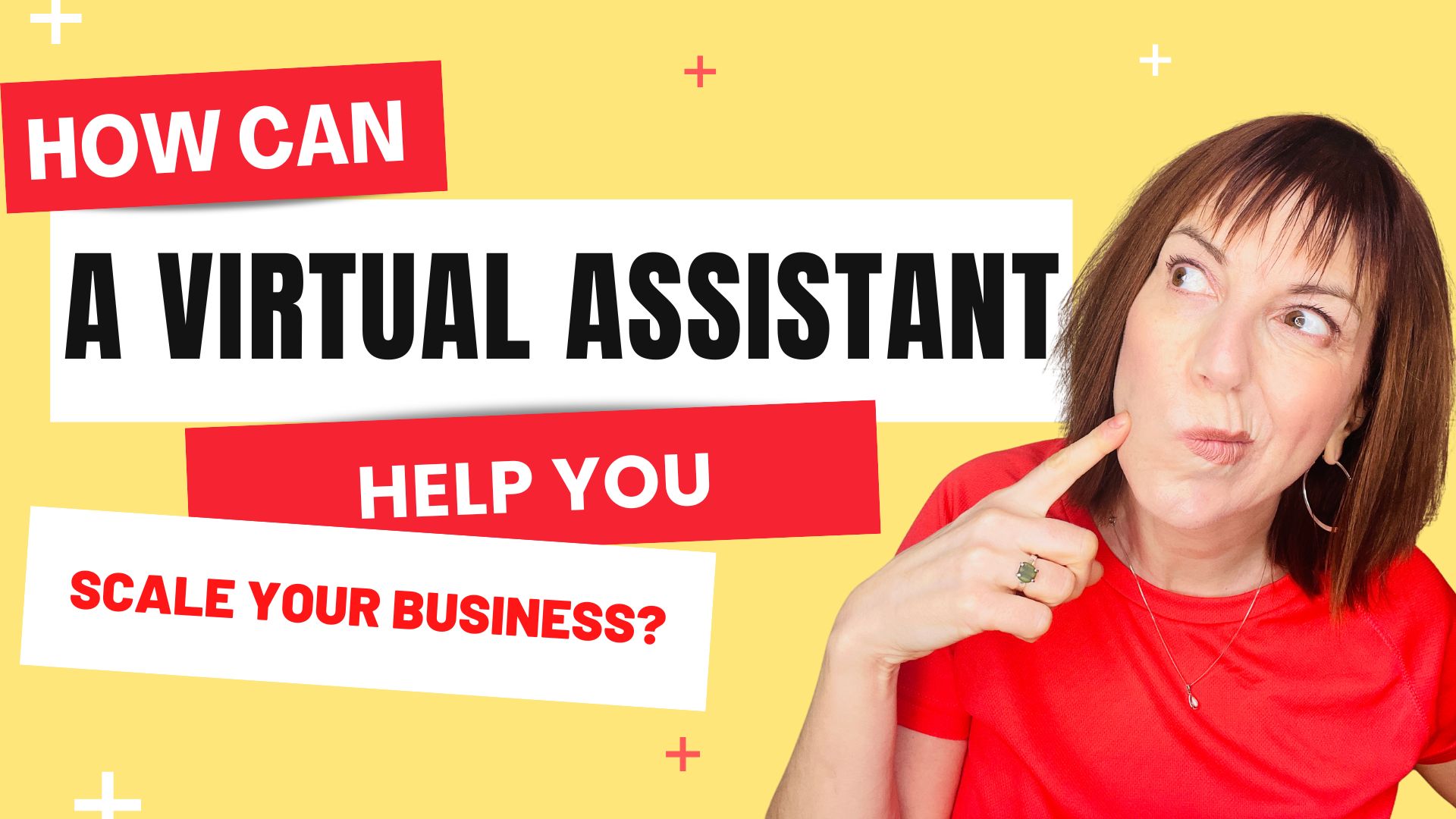Episode Summary
This week we are diving into the bedroom with Martha Lewis! No, no, it’s nothing spicy like… it’s all about sleep! The first thing you often lose in the pursuit of success on the entrepreneurial journey! Listen in as I share all kinds of horrifying stories and see if you can relate?
Learn how…
-lack of sleep can actually kill you.
-how it impacts your work
-why you can’t sleep
-what to do when you can’t sleep
-and what to NEVER do!
Join The Community: https://www.facebook.com/groups/WinTheHourWinTheDay/
Win The Hour, Win The Day! www.winthehourwintheday.com
Podcast: Win The Hour, Win The Day Podcast
Facebook: https://www.facebook.com/winthehourwintheday/
LinkedIn: https://www.linkedin.com/company/win-the-hour-win-the-day-podcast
You can find Martha Lewis at:
www.TheCompleteSleepSolution.com
https://www.facebook.com/completesleepsolution/
https://www.instagram.com/completesleepsolution/
https://www.facebook.com/groups/sleepforsuccess/
Martha Lewis’ ebooks:
“The 5 Mistakes Busy Professionals Make When They Can’t Sleep (and what to do instead)”
“5 Little-Known Reasons High Achievers Can’t Sleep (and how to fix it)”
Don’t miss out!! Get on our waiting list for The Outsourcing Playbook For Busy Entrepreneurs. More Results Less You! https://www.comingsoonfromkris.com/
Martha Lewis Complete Sleep Solutions
Kris Ward: [00:12:25] Hey everyone, it’s Chris ward with when? The hour, when the day podcast, and today we are going to get personal. We are diving into the bedroom. Okay? Stay tuned. It’s not gonna. It’s not going to be CD. We’re talking about sleep or for entrepreneurs. You know what that means? A lack of sleep. So today we have Martha Lewis, a sleep consultant to health conscious high achievers.
[00:12:49] Who want to sleep but can’t avoid the, she have our number with the multiple sleep certifications. I don’t know. That sounds like you just get to sleep and you get a certification, but I’m sure there’s more to it. And ms in holistic nutrition as an expert on gut health, she combined sleep foundation, stress resilience techniques and lab testing for underlying health issues to get to the root cause of the client’s insomnia.
[00:13:13] She’s been featured in numerous publications such as thrive global and sandwich. Oh, sorry. Swanwick sleep and various podcasts around the world and is a passionate speaker on the topic of sleep. Welcome to the show, Martha.
[00:13:27] Marthe Lewis: [00:13:27] Thanks for having me, Chris.
[00:13:29] Kris Ward: [00:13:29] Thank you, boy. I, I’m going to bare it all. I’m just going to tell you all my dark secrets and, and hopefully people can relate so there’s so much to talk about.
[00:13:38] So let me just dive right in. Well, let me backtrack for a split second. How does one. Land in this world asleep. I mean, clearly by the intro, you did not get a certificate for just sleeping. How did this become your passion?
[00:13:53] Marthe Lewis: [00:13:53] Well, it’s funny. It started with my son who wasn’t a good sleeper when he was a baby, and so I ended up hiring a sleep consultant to help with his sleep, and then I became a pediatric sleep consultant.
[00:14:05] Oh. Yeah, but the ironic thing was, is that even after he was sleeping through the night at six months old, I still wasn’t sleeping and my insomnia started in late pregnancy, but it didn’t go away after I had him and lasted another year and a half. Before I finally said, I’ve had enough. This is ridiculous.
[00:14:24] I’m a sleep consultant who isn’t sleeping. I have to do something about this. So that’s what got me into looking at certifications for adult sleep. And luckily, the woman who I trained with for pediatric sleep offered that. So I decided to take it. And I was very skeptical that it would help because I already knew a lot about sleep, but yeah, but it turns out I did.
[00:14:47] I needed to make multiple changes to some of my habits, to my schedule a little bit to my activity level, to what I was eating and when, and doing all of that at the same time. Within a month I was sleeping great again. So
[00:15:02] Kris Ward: [00:15:02] that is interesting because I tell you, nothing makes me angrier when you’re watching TV and nobody like, stay tuned out the commercial.
[00:15:09] We’re going to tell you the 17 year doing wrong load sleep. And I think, okay, I got to watch this. And then it’s always like ridiculous stuff. Like I don’t, you know, just don’t have a roast beef dinner five minutes before you go to bed. You know, like they’re all like, okay, huh. I knew that at five. So here’s some interesting things.
[00:15:26] Now. What I didn’t know. And we won’t dive into too deep into the like the brain and how it all works and stuff like that. Cause there’s so much I want to cover with you, um, is that I, it was explained to me by a natural path or whatever, that whatever those chemicals are, the ones that are responsible for interest and excitement are the same.
[00:15:46] The adrenaline is the same thing for stress because people would say to me all the time, well, are you stressed? And I’d say, cause I’ve had a long history of sleep issues, but I’m, I don’t want it. Knocking on a lot of plastic and wood here. I’ve been doing really well lately, so I don’t want to bring it up, but, but I would say no because I, I didn’t, I, I think stress is always the answer and easy answer for everything.
[00:16:09] So I didn’t buy into that. But on top of that, I think I’m a pretty positive person and really I could see all the time, like if something was going to happen tomorrow that I was super excited about, I would wake up in the night super excited, like isn’t morning yet like a child. And that’s great, except the next day when I had that gap of two hour sleep in the middle of the night, I’m slightly less excited about the event now.
[00:16:31] Marthe Lewis: [00:16:31] So
[00:16:31] Kris Ward: [00:16:31] that was really counterproductive. And you know, I would get like. You know, you just, you feel sick, you feel hung over. So for me it was like, Oh, it’s not stress. I’m just really hyper happy all the time, or enthusiastic and it was wearing me out. Nevermind. Of course. Then there’s the whole entrepreneurial journey where, you know, the first two years.
[00:16:52] Oh my gosh, I, you know, they tell you all the time, don’t wear people. We will let her talk. It’s, I just have so much to say on this. They tell you all the time about grinding it out, blah, blah, blah. So the first couple years when I was in business, you know, I would think, Oh, you can’t waste time. And I would try to work and then go to bed five minutes later, like, Oh yeah, they tell you grind it out.
[00:17:12] So let’s work to midnight and try to fall asleep at 1205. I’m going to tell you something that might shock you, listeners and our lovely guests that did not work, not to get to sleep, and there was no quality of sleep. So I do think this is such an important subject because it does change your life and your charm and your clarity and everything.
[00:17:37] So tell us some of the biggest misinformation about sleep.
[00:17:42] Marthe Lewis: [00:17:42] Well, you know, one of them you’re touching on for sure is that you can get by without sleep. Like actually, sleep is one of our five basic needs along with air, food, water, and shelter. So we’ll literally die without it. And if you don’t get enough over too much time, you’re going to burn out.
[00:17:58] You’re going to get sick, and you’re not going to be as productive and efficient and as successful as you want. So that, and. You know? So I think another misconception is that by staying up late and working that extra hour that you’re going to get an hour ahead. If that means that you’re missing sleep, then you’re actually going to be far less productive the next day.
[00:18:19] So you’re getting hours behind
[00:18:22] Kris Ward: [00:18:22] all a hundred percent and I’m, so I learned that the hard way and then I relearned it and I relearned it. Learned that a whole bunch of times. And that’s really a big part of where my platform, when the hour, when the day came with team building knowledge. Stuff because I would argue with my husband, he’d be like, I think you don’t understand.
[00:18:39] You don’t, you don’t have your own company. You have office job. And he’d be like, you’re being counterproductive. And I’m like, okay, whatever. Right. And then the next day he would see all these mistakes I met, made as well as, you know, I would all the time. Ah, this is horrible. I would wake up in the middle of the night and I would think of something and then I would not fall back to sleep.
[00:19:01] Like I’m going in the bathroom. I remember something, and then I think while I’m awake anyways, I’m wasting time. So I would go work for two hours in the middle of the night, and this reportedly by all accounts, did not make me a charming person the next day. And. It got so bad that my husband said like, that’s nuts.
[00:19:19] Like he said, you don’t fall back asleep sitting upright in the middle of the night with lights on in front of a computer. Like there’s, he was no sleep expert, but he had this much knowledge. So here’s my secret. He then started what I would call doing audits in the middle of the night. If he got up to use the bathroom, he checked my feet and if they were cold, he knew I’d been out of bed.
[00:19:36] So we had a no getting out of bed policy. This is how frigging bad it got. Like that’s nuts, right? And it really did totally impact my business. And when I started to make these changes. You know, through my platform and understanding that sleep was an essential component and you have to do everything at all costs to protect it.
[00:19:54] I’m telling you, I felt like I should go on a national campaign and do like real, like there was a secret to life that nobody really told me because this whole work hard thing, it’s the first to go.
[00:20:05] Marthe Lewis: [00:20:05] Exactly. And that’s exactly what happened to Arianna Huffington and what she did. You know, she collapsed at her desk one day from exhaustion and literally broke her face and yeah, woke up.
[00:20:18] In a pile, a pool of blood with her daughter standing above her in the middle of the day and went to, went to the, you know, to the hospital and they said she was just exhausted. And so that was the turning point for her where she realized that, okay, this isn’t the right way to live. And she became, you know, really passionate about sleep and wrote the book, the sleep revolution.
[00:20:39] And, um, you know, exactly like you’re talking about has had that. The experience where you realize that this isn’t something that I can neglect?
[00:20:49] Kris Ward: [00:20:49] No. I remember one day walking down the hall in between two meetings and there was this big long hall and I had to get to the next meeting. And here is the weakness in your mind when you go without sleep.
[00:20:58] Like I’m a functioning person. I, you know, I drove myself here, but you start to really lose. Grasp on reality. And I remember walking down this hall and I was so, I felt nauseous, like it wasn’t like being tired. I’d have to be rested to be tired. And I remember thinking, I’m just going to close this eye halfway down the hall and when I get halfway, then I’ll close the other eye.
[00:21:16] Like I thought I could rest eyes while I walked. Like, clearly you’ve lost your mind at this point, right? Like you’re not well. Right? So now people, you’ve, you’ve, you just losing all sort of grasp on reality. So I’ve learned these lessons and this was way back in the beginning. And now I will tell you, I’m so protective about my routine.
[00:21:35] And I noticed like sometimes even when I’m doing this podcast where I’m dealing with somebody else in a different time zone, I have to say, okay, like they’re in Australia, they’re getting up at 6:00 AM to do this for me. I can’t ask them to get up at four because I don’t want to work past 5:00 PM right?
[00:21:50] All this crazy math. But I even notice if I work, you know, let’s say an hour or not even two hours later, I noticed now how delicate that balance is and it affects my sleep. Like not talking about working at midnight anymore. I’m talking about I should be done at five and now I’m done at six 30 and I see how that impacts everything.
[00:22:10] So it’s a very delicate balance.
[00:22:12] Marthe Lewis: [00:22:12] Yeah, definitely. And everyone’s different for sure. But I am saying stuff like that too, as to, yeah, I have to cut things off by eight at the latest. And I go to bed at 10 and yeah, but sometimes evenings are the time I can work after my son’s in bed. And so yeah, it’s, yeah, like you said, it’s a balance.
[00:22:30] Kris Ward: [00:22:30] So what are some of the big things that you see the sleep routine that violates that sleep routine? That, you know, people just are not appreciating the value of, of what, how they’re messing it up.
[00:22:43] Marthe Lewis: [00:22:43] Well, I would say the big thing is looking at screens before bed. This is a really hard one for people, including me to not do.
[00:22:52] Um, you know, the recommendation is to not be on screens an hour before bed. And that’s because screens emit blue light, which, uh, suppresses melatonin and tells our body it’s daytime and keeps us awake. And they also make us wired, even though we’re. You know, we might feel tired. You have that wired but tired feeling.
[00:23:12] And so that’s a really tough one for, for a lot of us. Um, but it’s so important
[00:23:19] Kris Ward: [00:23:19] now when they see that, I feel like I’m in a therapy session here. Everyone listened to it. My routine, I’m speaking for all of you, but it’s about me. So when they say that, I get it. Like I know you shouldn’t be on Facebook cause you stimulate the brain with looking for new information and you get Adobe dopamine hit every time there’s, Oh, a new interest or a new piece of content.
[00:23:39] So one part of my routine is I, you know. Cause even if you’re reading a book, you still got a lamp on. Right. And of course, all my books are now on my iPad. So what I will often do is I’ll just watch something on Netflix, on my iPad, like it’s no longer the TV. I know this still is a screen, but anyhow, bear with me and I do have a dim down low.
[00:23:59] And then I’ll watch something that I’ve seen a thousand times, so I don’t have any real interest in it. Like friends or something. Like it’s just to soothe me into a routine, but there’s no, nothing new or dramatic is going to happen. I’ve seen the show, blah, blah, blah. Right. So I’m trying to use that because I don’t understand the, like if there’s no screen at tall, like where’s the gap between, I don’t know.
[00:24:21] What do you do to fall asleep? Like what? Where’s the gap? What do you do?
[00:24:26] Marthe Lewis: [00:24:26] Right. That is a tricky thing, but think of how new these screens are too. I mean, it’s only in the last few decades that we, that we have these screens in front of us all the time. So, um, so there’s other things to do, like a reading, but on a regular book or on a Kindle Paperwhite even that doesn’t have that backlight.
[00:24:47] I’m listening to audiobooks, taking a bath, doing some stretching, uh, meditating, doing a crossword puzzle like. You know, these
[00:24:55] Kris Ward: [00:24:55] types of causal sounds like punishment, but so
[00:24:59] Marthe Lewis: [00:24:59] whatever you would like to do.
[00:25:02] Kris Ward: [00:25:02] Okay. So for me, unfortunately all my books are business. So I’ve learned that I can’t even read like at seven o’clock at night cause I get stimulated and they want to start.
[00:25:11] This is a problem. Like people think my energy is great, and I always have lots of energy, but that’s great until 11 o’clock at night, turning it down. And I do think there are people out there like myself, you know, maybe that’s a backbone of being an entrepreneur. You’re high energy, or also you’re just driving yourself at such a rate.
[00:25:28] You don’t know how to put the brakes on. So I would say to like, okay, I do meditate in the morning and I. Then in the evening I thought, well, that sounds like work. Can I just do that in the morning? So it’s probably better to meditate at night and not to dive into this cause it’s out of my comfort zone.
[00:25:44] I’m just not that modern of a chick. But this, this is also discount when people are looking at you affectionately right before bed, because now you’re supposed to, you’re supposed to be delivering goods and services as far as romance goes, but that’s an activity. So doesn’t that be counter? I mean, I know the way the male body is.
[00:26:02] A rabbit falls asleep. They always say rabbits. Even the side of the road is not dead. He just had some loving. Um, but that also stimulates the brain as well. Correct? Like now you’re doing exercising.
[00:26:15] Marthe Lewis: [00:26:15] Yeah. I think it’s different for everyone too, and kind of depends on your chronotype and it just, yeah, it just depends on you.
[00:26:22] Um, but you’re right, like men tend to have no problem falling asleep right after. And for me, I’m definitely wired. And so that’s actually. Not the time of day helpful. Yeah, exactly.
[00:26:33] Kris Ward: [00:26:33] And then the time you spend arguing that with your mate also,
[00:26:38] Marthe Lewis: [00:26:38] it doesn’t work. It’s just
[00:26:40] Kris Ward: [00:26:40] being spirited. No, you don’t understand.
[00:26:42] I’ll be a week then. Okay, well we’re awake now cause we’re debating. All right. Okay, so get rid of this screen. What else do we need to be thinking about?
[00:26:50] Marthe Lewis: [00:26:50] I’m also managing stress levels throughout the day as well. So we can’t expect to, you know, wake up to an alarm, hit the ground running, go, go, go all day.
[00:27:02] And then you, like you were saying, work until the last second and then fall asleep five minutes later. Like it doesn’t. Work that way. So I actually recommend starting off with a morning routine, which meditation can be a great part of that. But so you’re not elevating your cortisol levels really high from the get go by waking up to an alarm, checking your email, you know, start your brain, your mind racing.
[00:27:26] So yeah, taking it easing into your day is great. And then taking breaks throughout the day is also key. Um, luckily it’s better for productivity as well to take breaks, but. It’s also going to help take that time to lower your cortisol levels. And so
[00:27:44] Kris Ward: [00:27:44] that’s a good point. So I think what you’re saying, it’s kind of like when you always think of when they say, uh, you know, if you’re looking for your beach body, you don’t start in June, right?
[00:27:52] If you want to, this is whatever. So what you’re saying to me is bedtime is really not the time to panic about sleep. Right. So I do notice, because I work out pretty much every day, like it’s the odd reason that I wouldn’t work out. I generally work out seven days a week, and what that teaches me is I have to have a certain amount of self care to maintain that exercise in the morning to feel like it.
[00:28:14] So then everything falls in place. Ish because I’m, I’m supporting that I have to be rested in well enough and strong enough to have a good workout. And so then that does mean I have to eat better and I have to pace myself in certain things. So what you’re saying is, you know, these are good tips about the blue screen and all that stuff, but it’s just a result of your overall self care.
[00:28:37] Marthe Lewis: [00:28:37] Exactly. And what you do throughout the day affects how you sleep at night.
[00:28:43] Kris Ward: [00:28:43] Right. And not make sense. Because before my platform, when the hour, when the day, which is really, you know about. You know, having, having a team so that you are not working crazy hours and all this other stuff. And if you’re, we talk about that we’ve actually got a product coming out the outsourcing playbook for busy entrepreneurs.
[00:29:01] And when I understood that you could change your life by starting a team, that’s when everything changed for me. Cause you’re right, I would wake up in the morning, literally, I would feel like. Your inner being or your spirit was jumping out of bed before I could physically get there because like the race was on, right?
[00:29:17] So there was an energy that I was always trying to control of, you know, people didn’t like to be rushed and they don’t like it when I asked them to talk quicker, could we move this along faster? And I had to learn, okay, slow down. But really that was a false pretense because I was. Pretending to slow down in my head and screaming like, we need to get onto the next thing, go, go, go.
[00:29:37] So nevermind that. I’m sure I wasn’t fooling anybody, but that’s hard on the heart and the mind when you’re constantly trying to control your impatience. Right. Whereas now where my lifestyle has completely changed over the last eight years, it really does. You know, I do notice a difference in the sleep.
[00:29:54] So I guess faking it and tricking your body is not an effective tool.
[00:29:59] Marthe Lewis: [00:29:59] Right, exactly.
[00:30:01] Kris Ward: [00:30:01] Okay. Good to know. Good to know. Alright, so what are some other things that we need to know?
[00:30:08] Marthe Lewis: [00:30:08] Well, um, I would say, you know, another myth is that we need this eight hours of sleep. That is the average, but the range is actually seven to nine hours per person.
[00:30:21] And it’s, and it’s different for everyone. Um, and it’s also gonna change throughout your life too. You know, depending on how stressed you are, how healthy you are, how active you are, all those things. So, but yeah, there are some people who only need closer to the seven hour Mark and those who need closer to the nine hour Mark.
[00:30:40] And. You know, the reason this, the seven hour Mark is there is because lots of studies have been done showing that if you’re getting fewer than seven hours of sleep a night on a regular basis, that’s when your, the health risks start going up for all kinds of different chronic disease. So yeah, seven to nine is the recommended range.
[00:31:02] Kris Ward: [00:31:02] So lack of sleep really, really will kill you. Like, or certainly make you unhealthy.
[00:31:07] Marthe Lewis: [00:31:07] Exactly.
[00:31:08] Kris Ward: [00:31:08] Yeah. And so the diet stuff, you mentioned that when you were struggling with sleep and feeling foolish about it, cause there you were asleep, extra tired. Nobody wants to see that, right? Nobody, it’s like a marriage counselor who’s divorced.
[00:31:20] Nobody wants that. Right. Um, nutrition, we’re just talking common sense. Eat right, don’t eat late, don’t have sugars. Like. There’s no fooling, you know, you can’t be having a pizza and hour before you go to bed, that kind of stuff.
[00:31:33] Marthe Lewis: [00:31:33] Yeah. I definitely, you know, dive deeper into it a little bit. Um, talking about food sensitivities and finding that out for people, but for the basics, I mean, blood sugar is really key to keep steady throughout the day.
[00:31:47] If you’re on this roller coaster. I’m all day, then you are going to be at night as well. And if your blood sugar a lot true, drops too low in the night, then your body’s going to release cortisol because it’s stressed and then that wakes you up and suppresses melatonin and yeah, and it’s really hard to go back to sleep after that.
[00:32:05] So that’s definitely one critical thing is, um, avoiding those. Pastries and doughnuts and sugars and fruit juices and things like that, and making sure to have healthy, fat and protein with every meal to, to lessen that blood sugar spike.
[00:32:23] Kris Ward: [00:32:23] Yeah. Right. And let’s be clear, like I know we are skimming over this.
[00:32:29] Really at a higher level, but honestly, you know, this, I, you know, I, I guess I could just speak for myself, but I certainly know lots of entrepreneurs at different points in their journey and sleep. As my husband used to say, it was the first thing I stole from, like he’d say, like, you can’t always steal from sleep.
[00:32:45] You can’t stay up later and get up earlier. This is crazy. That can’t be your first go to. So I do think it is the journey of an entrepreneur, especially, you know, with the myth of you have to grind it out and earlier years and stuff. So I think it’s an important conversation to have so that people can realize the damage they’re doing.
[00:33:02] Because I didn’t get it until I started putting sleep back in my life. I mean, all mine. Gosh, what a difference. Like suddenly the birds are chirping and people weren’t annoying and everything, and I was much more clearheaded and I got more results. But let’s be really super clear. You’re giving us like the Coles notes version here.
[00:33:20] Really, I’m glossing over some ma, you know, major health stuff like a, we’re clear that you have a lot more vast knowledge on this topic, but we’re just trying to get some takeaways for today, right?
[00:33:31] Marthe Lewis: [00:33:31] Yeah, exactly.
[00:33:32] Kris Ward: [00:33:32] Yeah. So, so tell me, you know, what, what’s the range or, or give me just, you know, you do your thing.
[00:33:39] Give us some myths, some more myths.
[00:33:42] Marthe Lewis: [00:33:42] Um, let’s see some more myths. Oh. Well, I have a piece of advice I like to tell everyone that is, yeah. That if you aren’t sleeping, I actually recommend getting out of bed. So this is for, yeah, whether you’re having a hard time falling asleep at bedtime, or you wake up in the middle of the night and you’re asleep, or you can’t go back to sleep.
[00:34:06] Then if it’s been about 10 or 20 minutes, I actually suggest getting out of bed. And the reason is we want, you want your brain to have the strong association that bed equals sleep. And for people who have been struggling to sleep for a long time. They’ve lost that association. Like their brain now says, Oh, when I’m in bed, I lie awake for long periods of time worrying about stuff.
[00:34:29] Yeah. So that’s why I recommend getting out of bed and going, leaving your bedroom, keeping the lights down going, doing something relaxing again, it should not involve screens. So that’s a tricky one. Um.
[00:34:44] Kris Ward: [00:34:44] Right.
[00:34:44] Marthe Lewis: [00:34:44] But yet doing something like reading, if you’re, if your mind is racing, then writing those thoughts down, but not actually, you know, starting to work, but just getting the ideas out so you don’t have to worry about losing them.
[00:34:58] Um, and then once you start feeling sleepy or about 10 to 20 minutes later, then go back to bed. And if you still have a hard time falling asleep, then get back up and keep doing that until eventually you go back to bed and
[00:35:10] Kris Ward: [00:35:10] fall asleep. So what you’re saying is they’re laying in bed angrily doing math of, if I fall asleep right now, right now, how many hours sleep will I get?
[00:35:19] You’re saying that doesn’t work.
[00:35:21] Marthe Lewis: [00:35:21] Exactly, and it’s so hard to get all the bed. I actually had to do this last night. I think my son went to preschool for the first time in two months today, and my mind was racing and I, I had to get out of bed and it’s so hard to do, so I get it, but I get out of bed. I go read for literally a few minutes and I’m falling asleep again, and then I get back in bed and I’m asleep.
[00:35:45] So it’s actually so much faster. Like you get more sleep by doing that, then. Like, I feel like if I lie there in bed, I’m just going to be there for an hour or two, not sleeping.
[00:35:56] Kris Ward: [00:35:56] My mother sent me a graphic, a little cartoon, and it was so funny and it said it was showing like a three o’clock in the morning.
[00:36:02] Somebody was thinking, I wonder, do penguins have knees? Right? And you’re like, all of a sudden, the middle of the night, you’re thinking of something. So we’re relevant. Like it’s crazy. I remember one night in the middle of the night I woke up, I was thinking, Hey, I’ve had this mattress for like a year. I think I’m supposed to rotate it right.
[00:36:17] And it’s like three o’clock in the morning like we’re, this is not the book I found. Also, it helped me a great deal. To not have any clocks in the room like that. I could see. Right. So it wasn’t stimulated, not just by the light, but by doing that, gosh darn math again, right?
[00:36:33] Marthe Lewis: [00:36:33] Yeah, exactly.
[00:36:35] Kris Ward: [00:36:35] Okay. So when people come to you, where are they in this journey?
[00:36:39] Like. I would think a lot of people, I mean, I, I think now over the years I did have an insomnia, but I’m not one that appreciates labels. And I always think, Oh, it’s a temporary situation. Like, Oh, it’ll be fine once I get through this or that, or whatever. So where are people coming to? And I would think that they’re often coming suffering longer than they need to.
[00:37:00] Marthe Lewis: [00:37:00] Yes, definitely. I mean, most people I work with, I’ve been not sleeping well for years, even decades. And, and you know, so technically, I mean, to be concern, to be diagnosed with insomnia, it’s actually, most of us don’t have insomnia. Right. Like for that to be diagnosed as a sleep disorder. So, yeah. So I’m not working with people who.
[00:37:23] Have sleep disorders necessarily, but they know that they aren’t sleeping well. And you know, it’s frustrating to either, you know, some people have a hard time falling asleep. Everyone wakes up in the middle of the night and has a hard time going back to sleep. And so, yeah. So every, you know, every single person has that in common, and it’s something they’ve been dealing with for years.
[00:37:45] Um, and so people come to me at different places. Some people I’m working with, starting with the basics. You know, and, and providing accountability, for example, for, you know, making sure that they’re all screens before bed and, and a variety of other things. Yeah. And then other people already know all that stuff and they’ve already been doing that, which is frustrating if you’re following all those rules and, and it’s not helping.
[00:38:10] And so that’s where I then dive into those underlying health issues and do some testing to find out what’s going on in people’s gut and with her hormones and with her thyroid, and really get to the root cause of why they aren’t sleeping. Um,
[00:38:24] Kris Ward: [00:38:24] cause I think, yeah,
[00:38:27] Marthe Lewis: [00:38:27] well I just think that we’re meant to sleep well.
[00:38:29] And if you aren’t and you don’t have some crazy sleep disorder that we can figure it out. There’s something going on in your body that’s keeping you from doing
[00:38:37] Kris Ward: [00:38:37] that. I think what you’re saying is you’re right. We’re throwing around terms that I don’t know what they mean. So I said insomnia because I hear it all the time, but you’re, that’s a clinical term.
[00:38:47] I don’t have insomnia. It’s a condition. So I don’t have that. So what you’re saying is there, I think what we often forget is this is a body that has a lot of activity in it, whether you’re eating or exercising and how your brain operates. And then we lay this. You know, physical body down at night and go, okay, I’m not sleeping as well as I’d like to.
[00:39:05] And there’s a lot of different things, like you mentioned, food sensitivities or patterns or you know, poor coping skills or you know, whatever. That just because you close your eyes doesn’t mean like the factory has shut down.
[00:39:19] Marthe Lewis: [00:39:19] Right. Exactly.
[00:39:20] Kris Ward: [00:39:20] Yeah. Okay.
[00:39:23] Marthe Lewis: [00:39:23] Alright.
[00:39:24] Kris Ward: [00:39:24] Yeah, so yeah, and I think that’s it. We all like my mother’s coping skills when we were kid, I said, get back to bed.
[00:39:34] So, or it’s going for 10 o’clock okay. It’s seven 45 mom. Right? Like I can tell time. So that’s a joke. We all say to her, it was always going for 10 o’clock like. No, it’s seven 45. But it, you know, um, so that self soothing was perhaps not taught to me. Um, so I think that’s it. We think it’s supposed to be a natural thing.
[00:39:55] I’m tired. I feel tired. I’d have, I’ve had a long day. I go lay down and then you just think, Oh well this is broken cause it’s not working. So there’s a whole bunch of things that we can dive in and look into. Correct.
[00:40:06] Marthe Lewis: [00:40:06] Exactly. Yep. Yep.
[00:40:09] Kris Ward: [00:40:09] She’s nodding enthusiastically.
[00:40:11] Marthe Lewis: [00:40:11] Sometimes
[00:40:12] Kris Ward: [00:40:12] people forget that. Oh, you have to say yes.
[00:40:14] Right. Okay. Well, I know with my enthusiasm for your subject, uh, you, you know, perhaps I was a diving in more than I let you share your knowledge, but I think what I think what I wanted to highlight here today is when somebody comes on and they say, here’s some things that you could do for sleep. And it’s like, okay.
[00:40:34] What I want to do, and I say this with affection, is poke the holes in those things because for when you are not sleeping, those things just sound so simplistic and, and frustrating. So I think what we’ve learned today is it’s a much bigger, you know, uh, area where there’s all these subtleties that could be impacting your sleep.
[00:40:54] And so. When people want to dive into this a little bit more because they now realize how important it is, where can they reach you?
[00:41:03] Marthe Lewis: [00:41:03] Well, my website is the complete sleep solution.com, and I have a couple of eBooks on there that you can download. Um, one talking about what to do if you can’t sleep like that, getting out of bed.
[00:41:15] And there are a few other things there. And then another one that’s diving more into the health issues of why you can’t sleep. And then I’m on Facebook and Instagram is complete sleep solution. And I also have a Facebook community called sleep for success that I’d love for you to join if you are having issues sleeping and yeah, you want to learn more about why that is and what you can do to fix it.
[00:41:41] Kris Ward: [00:41:41] Awesome. Okay. Well, and people, I can tell you from looking at her, she looks well rested
[00:41:45] Marthe Lewis: [00:41:45] so she knows what she’s talking about.
[00:41:47] Kris Ward: [00:41:47] It looks great because you really can see the difference in the eyes and the skin. And when, you know, I look back now and I used this in a slide show once, and I had, you know, it’s under the umbrella.
[00:41:58] I wasn’t sleeping cause I didn’t have it. Team. And even though, um, that’s my platform is when the hour, when the day with the team and stuff. But when you look at pictures of each 12 years ago, Oh my gosh, I look like my mother. Like I look way older now or way older then than I do now because it was a lack of sleep.
[00:42:16] So it really does wear you down. It’s so hugely important. Yeah, totally. We go, I love podcasts. Yeah, you do. Don’t play these podcasts before you go to bed. No, I’m all, I’ll get popped up about it, but I do think it’s, I think it is a really important message that is not addressed enough and it’s overlooked.
[00:42:36] Like I think until I realized, I think that it’s almost like sleep as a luxury, but it’s not. Right. Yeah, exactly. Fabulous. Okay, well thank you so much for joining us today, Martha. I really appreciate it and everyone check it out. I mean, you’ve got a really great option there. You can even check her out in her group and get some tips from her there.
[00:42:57] So please everyone listen to this episode and get a good night’s sleep tonight and we will see you on the next show, Chris ward, when the hour when the day. Thanks so much.

